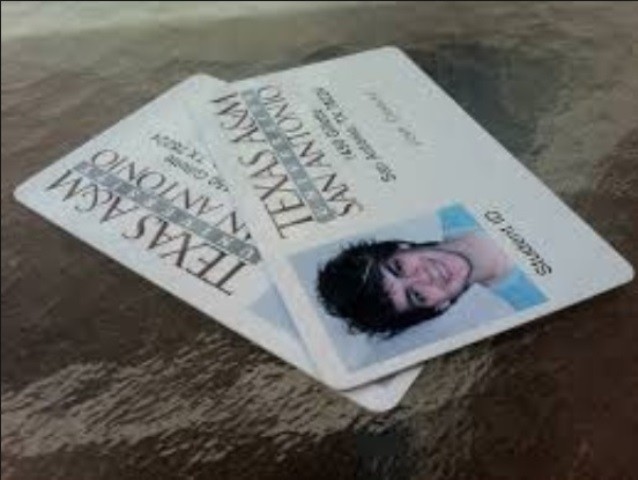A Democrat senator from Austin, Texas, has pre-filed a bill that if passed, would add a college or university ID to the list of forms of identification that could be used for voting in Texas.
Senate Bill 284, filed on December 8, would amend the Texas Election Code to allow an ID “issued by a public institution of higher education located in this state that contains the person’s photograph.”
The bill pre-filed by Senator Kirk Watson (D-Austin) would also amend the Election Code to allow an identification card issued by a state agency in Texas. This ID, like an ID from a higher education institution, must have the person’s photograph on it in order to be used for voting.
Texas Attorney General Ken Paxton filed a petition for a writ of certiorari in the U.S. Supreme Court in September asking the Court to fully reinstate the Lone Star State’s voter ID law, as reported by Breitbart Texas.
SB 14 was signed into law in 2011 by then-Governor Rick Perry. The Texas Association of Hispanic County Judges and County Commissioners, Texas State Conference of NAACP Branches, Mexican American Legislative Caucus of the Texas House of Representatives, League of United Latin American Citizens, The United States of America, La Union Del Pueblo Entero, Inc., Texas League of Young Voters Education Fund, and others sued claiming the law was unconstitutionally discriminatory.
The two questions presented in the petition for writ of certiorari to the U.S. Supreme Court are:
- Whether Texas’ voter-ID law ‘results in’ the abridgement of voting rights on account of race.
- Whether judgment should be rendered for petitioners on the claim that Texas’ voter-ID law was enacted with a racially discriminatory purpose.
Texas AG Paxton urged in his petition to the U.S. Supreme Court that the court of appeals affirmed the district court finding that “Plaintiffs have not demonstrated that any particular voter . . . cannot get the necessary ID or vote by absentee ballot under [Texas’ voter-ID law].” He also argued that there is no evidence that the law affected political participation by minority voters.
An interim remedial Order was issued which applied to the November 8, 2016, election. The Order was intended to provide a temporary solution for State officials as it related to the specified forms of ID allowed for voting.
An Obama appointee, Judge Nelva Gonzalez Ramos in Corpus Christi, Texas, issued the interim remedial Order on August 10th mandating that “Voters who appear on the official list of registered voters and present a valid voter registration certificate, a certified birth certificate, a current utility bill, a bank statement, a government check, a paycheck, or any other government document that displays the voter’s name and address and complete and sign a reasonable impediment declaration shall be permitted to vote using a regular ballot.” In addition to spending at least $2.5 million for informing voters of changes, the Court ordered that the State “shall continue to educate voters in subsequent elections concerning both voter identification requirements and the opportunity for voters who do not possess SB 14 ID and cannot reasonably obtain it to cast a regular ballot.”
In October 2014, Judge Ramos held that the Texas voter photo ID law, SB 14, violated the Voting Rights Act of 1965 because it had an impermissible discriminatory effect, including deliberate discrimination against blacks and Hispanics, violated the Equal Protection Clause, and unconstitutionally offended voting rights guaranteed under the Fifteenth Amendment, as reported by Breitbart Texas. The Obama appointee also ruled that the Texas law was an unconstitutional poll tax prohibited by the Twenty-Fourth Amendment because the law provided for a fee for issuing copies of birth certificates or other information needed for a voter ID.
In July, the U.S. Court of Appeals for the Fifth Circuit found that Texas’ voter photo ID law had a discriminatory effect under the Voting Rights Act, but reversed the district court’s finding of discriminatory purpose, as reported by Breitbart Texas. The 9-6 ruling also found that it did not constitute a poll tax but ruled that the lower court must put an “interim remedy” in place to mitigate the “discriminatory effects.” The Fifth Circuit also warned that the district judge should “ensure that any remedy acted ameliorates SB 14’s discriminatory effect, while respecting the Legislature’s stated objective to safeguard the integrity of elections by requiring more secure forms of voter identification.” The appellate court remanded the case to the district court to determine if the voter ID provisions were written to be intentionally discriminatory.
Judge Edith Jones wrote the dissent to the Fifth Circuit en banc opinion which was joined by four judges. As reported by Breitbart News, Jones wrote, “Requiring a voter to verify her identity with a photo ID at the polling place is a reasonable requirement widely supported by Texans of all races and members of the public belonging to both political parties.”
The President Ronald Reagan nominated judge also wrote, “By keeping this latter claim alive, the majority flans the flames of perniciously irresponsible racial name-calling.” She also wrote that the Fifth Circuit’s “judge-made ‘solutions’” “will backfire.” The public will “question judges’ impartiality,” and “[l]awmakers at every level will be forced to be race-conscious, not race-neutral, in protecting the sanctity of the ballot and the integrity of the political process,” she explained.
Lana Shadwick is a writer and legal analyst for Breitbart Texas. She has served as a prosecutor and associate judge in Texas. Follow her on Twitter @LanaShadwick2.
Texas Senate Bill 284 by lanashadwick on Scribd

COMMENTS
Please let us know if you're having issues with commenting.